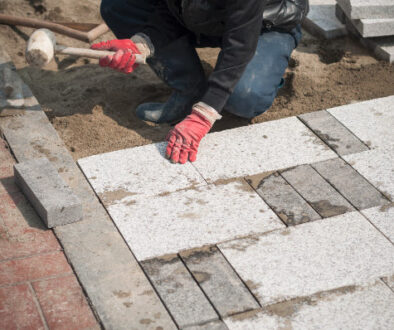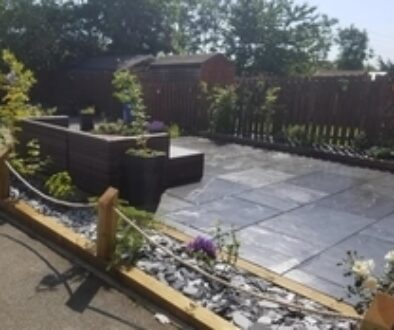How Flood Waters Affect Your Driveway
Flooding is the number one cause of damage to driveways. Flooding occurs when there is standing water on the surface of an impermeable driveway.
Without the proper drainage system, water runoff will build puddles especially if the driveway is not properly sloped. Worse is when the sloping is pointing to your front door or garage.
Moisture from water and humidity builds harmful bacteria and will cause rot to home implements, especially the driveway itself. Neglected driveways produce weeds, collect murky soil, and will become useless.
How can you prevent driveway flooding? What is the most effective solution in getting rid of floodwater from your paving?
Read further to find out how.
Find the source of flooding
Save your driveway by adopting the following tips on flooding.
- Where is the water coming from? If it’s from rain, where is the catch basin?
- Redirect the water flow to a more effective drainage system.
- Check gutters and downspouts. The water terminal should catch the rainwater coming from the downspouts and is directed to a proper drainage system.
- Find the best path of the water. If it’s necessary, dig up and fix the leveling of the ground. This method could be a little costly and laborious but will save you tons of money in the end.
- Dig additional ditches to create a runoff when you have figured out the waterflow.
- Replace the driveway with permeable paving.
What happens when you have poor sloping?
- Poor water runoff contributes to frequent flooding that can extend to your front door and garage
- Insects love to breed on standing water
- Driveway paving softens eventually with puddles
- Driveway surface will become slippery and cause accidents
- Driveway’s integrity contributes to your property’s low resale value
Tips on preventing pavement flooding
- Redirect the water flow
- If you can find the cause of flooding, build a different path for water to flow. Wait for the rain and see if the diversion worked.
- If you notice the problem comes from the sloping of the driveway, then the path is not the problem. You need the help of a driveway professional to fix the surface levelling.
- Check the gutter and the downspout. If the water drops from a damaged gutter, it means the water does not fully flow to the downspout. Fix the downspout and make sure it connects tightly to the pipe it should be supposed to fit.
- But if the gutter is working fine, try to extend your downspout pipe that will lead the water to a proper drainage system.
- Avoid diverting the water runoff to another property or to the street. With proper channelling, you can keep the driveway from further damage and avoid penalties for violating local laws.
- Ensure that you have consulted driveway experts regarding local permissions.
- Install a new drain
Most drainage systems are a failure due to frequent flooding. Apart from wear and tear, your drainage could be overly clogged.
- Let your driveway fitter create a trench drain in your landscape for effective de-flooding.
- Ensure the path is sloped downward to the street to prevent the water from entering the centre pavement. Lead the trench to the drainage point or a dry well.
- For effective water runoff, install a French drain and a dry well as its endpoint to ensure the soil absorbs the collected water from the heavy rain.
What is a French drain?
A French drain is a method in preventing flooding intended for problematic driveways and landscapes.
Install a French drain to a spot in your landscape where you think most of the water drips off. This drain is built by digging a long trench that goes towards the dry well. With a French drain, you can bury a perforated pipe and gravel to percolate the water that drips down from the soil.
Before laying the pipe, place a geo-fabric for separating dirt from water that goes into the pipe.
- Invest in a driveway makeover
The most common problem of flooding is due to non-permeable driveway paving. A permeable surface absorbs water fast.
Concrete paving collects standing water because it is compact and less porous than block paving, tarmac, or gravel. If you pursue using concrete, ensure that you have an effective drainage solution.
Even though the changing of the driveway surface is costly and labour intensive, having a flood-free driveway will let you enjoy it more. The driveway contractor you hire can also help you with planning permission if a requirement comes up.
Gravel and tarmacadam are suitable surfaces against flooding. The flood water will naturally flow down in between the gravel particles. The ground will absorb the water fast and will prevent standing water on the surface.
Conclusion
Effective drainage is a lasting solution and will keep your driveway in its best condition. With these tips, you have the option to do it by yourself if you have the necessary tools and equipment. But we highly suggest having someone expert in driveways do the job so they can assess beforehand what to fix.
If you need to talk to licensed driveway contractors, you can contact Newcastle Driveway and Patio Pro. They are ready to help.
Call our representatives or send your queries through the websites to take immediate action for your driveway flooding issue. Read more of our blogs and get informed!



